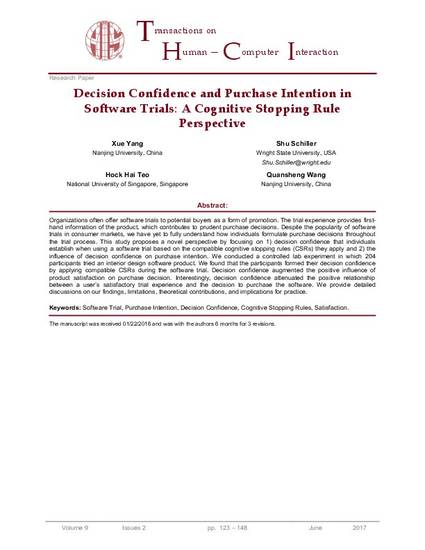
Organizations often offer software trials to potential buyers as a form of promotion. The trial experience provides first- hand information of the product, which contributes to prudent purchase decisions. Despite the popularity of software trials in consumer markets, we have yet to fully understand how individuals formulate purchase decisions throughout the trial process. This study proposes a novel perspective by focusing on 1) decision confidence that individuals establish when using a software trial based on the compatible cognitive stopping rules (CSRs) they apply and 2) the influence of decision confidence on purchase intention. We conducted a controlled lab experiment in which 204 participants tried an interior design software product. We found that the participants formed their decision confidence by applying compatible CSRs during the software trial. Decision confidence augmented the positive influence of product satisfaction on purchase decision. Interestingly, decision confidence attenuated the positive relationship between a user’s satisfactory trial experience and the decision to purchase the software. We provide detailed discussions on our findings, limitations, theoretical contributions, and implications for practice.
Available at: http://works.bepress.com/shu_schiller/50/
